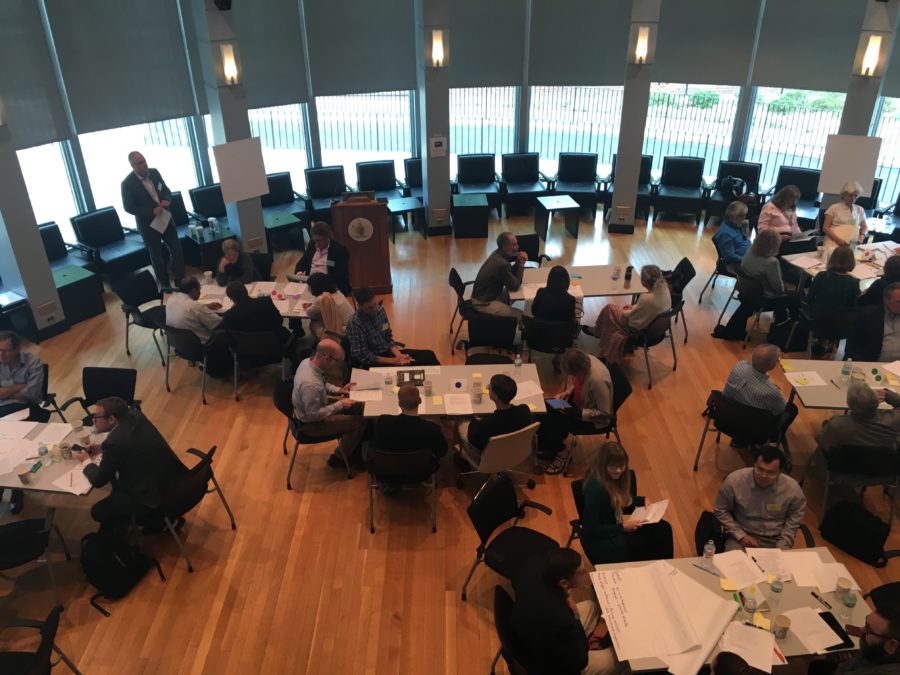13th October 2016 San Francisco, USA
At the root of it all

UK and US delegates discuss issues in Plant Health Research during a breakout session (photo credit: Stefania Di Mauro-Nava)
When our ancestors began cultivating plants and fungi for food, they brought about a massive change in how human civilizations across the globe developed. The agricultural revolution, which began in the UK, propelled us into the modern era. The development of agriculture has made it possible for our societies to thrive, create resources and largely meet the needs of the populace. An instrumental part of today’s agricultural presence is plants, which contribute to food security, resource development and remain instrumental in advancing the agricultural sector.
The UK is at the forefront of science and technology advances in botany. In 2013, the UK released an Agri-Tech Strategy which included a £160 million government investment to improve translation of research into applications for agricultural and related industries. Since then, the UK has released a number of other reports, including this year’s (2016) UK Animal and Plant Health Strategy, which built off of previous reports calling for a more coordinated approach in funding plant health research.
As part of the UK’s engagement in agri-tech, and specifically on Plant Health, the UK Science and Innovation Network (UK SIN) in the USA, in partnership with the Biotechnology and Biological Science Research Council (BBSRC), Research Councils UK in the USA (RCUK USA), the US National Science Foundation (NSF), the US Department for Agriculture’s National Institute of Food and Agriculture (USDA-NIFA) and facilitated by the University of California, Davis (UC Davis), sponsored a 2.5 day workshop in Washington, DC. The workshop brought together over 40 researchers from the UK and US to discuss the top issues in the plant science community.
Delegates came together to identify areas for collaboration focusing on how plants interact with other biological components in their surroundings, including pathogens, pests, weeds and symbiotic organisms. They also explored how disruptive technologies, like synthetic biology and genome editing (aka CRISPR) are impacting the field and how these tools can advance research in plant health. At the conclusion of the workshop, delegates had an opportunity to feed thoughts they had on top priorities for continued advancement in this area and started exploring potential international collaborative projects that could help advance the field for the UK and the US.
Stay tuned for more information about our Plant Health work in the coming months. For more details about this workshop, please leave a comment below or follow the #UKUSPlantHealth tag on Twitter!